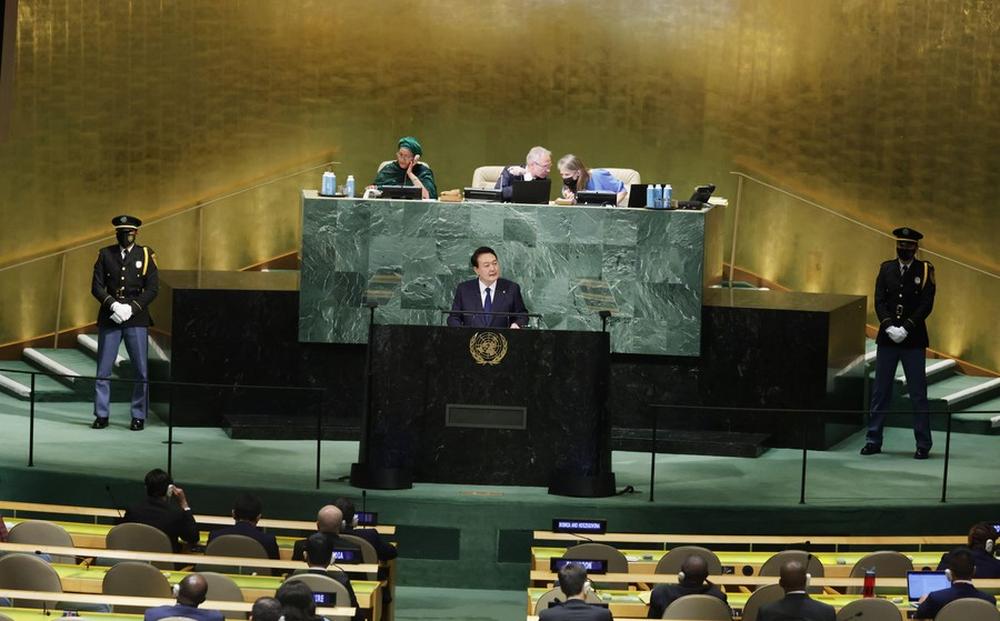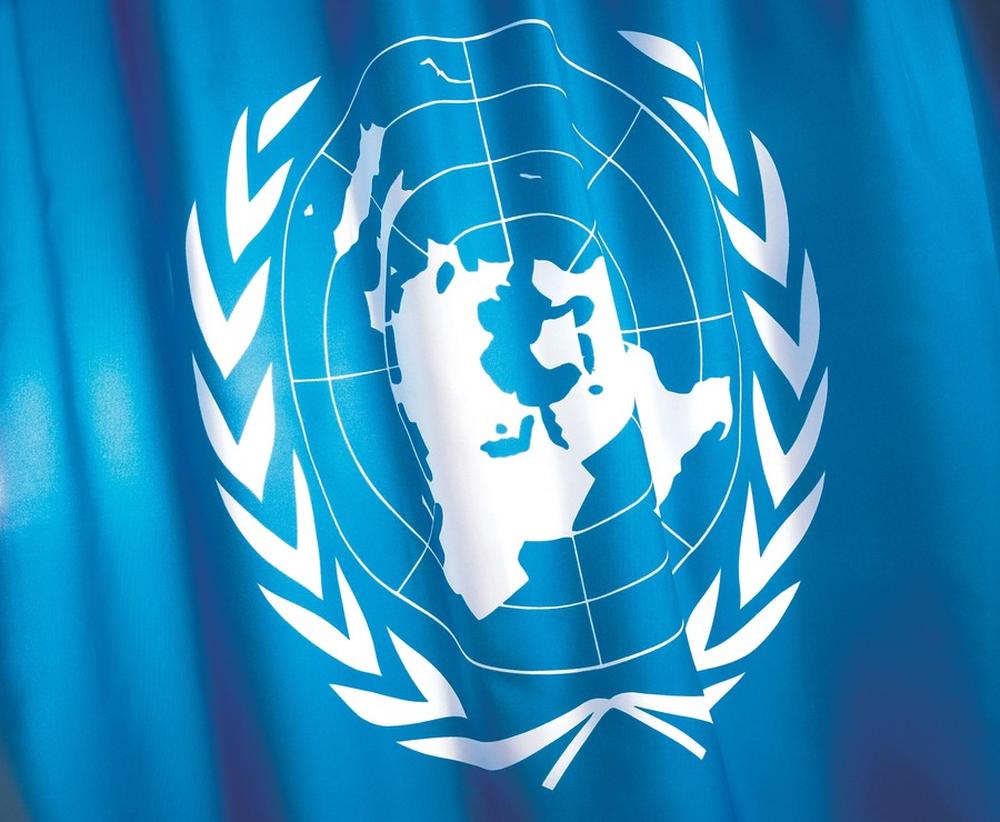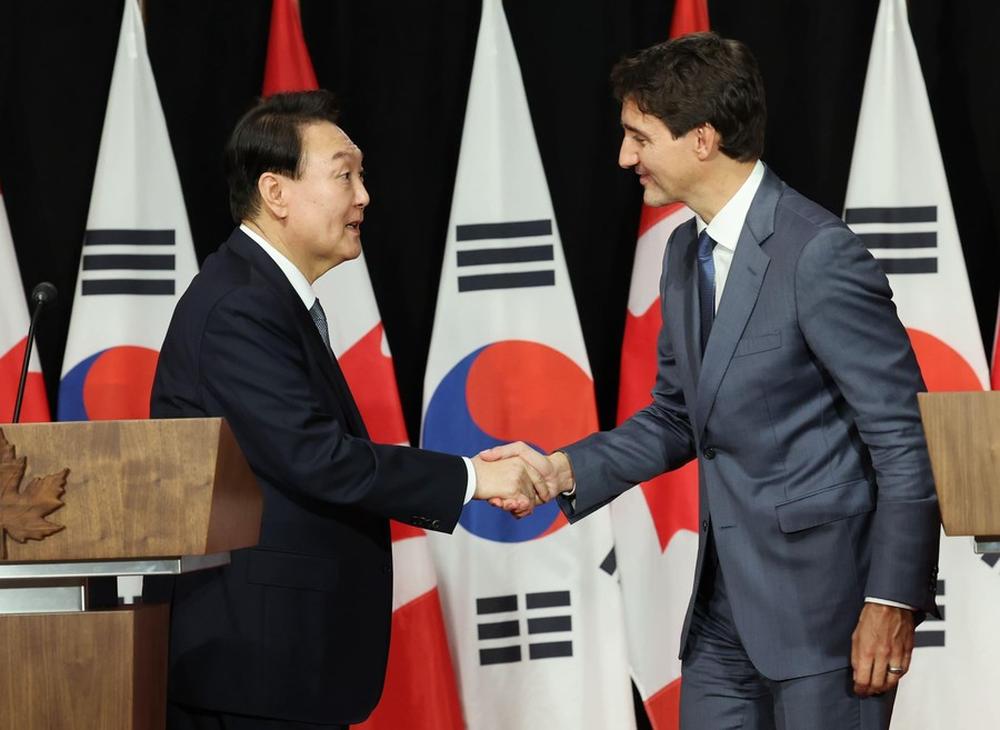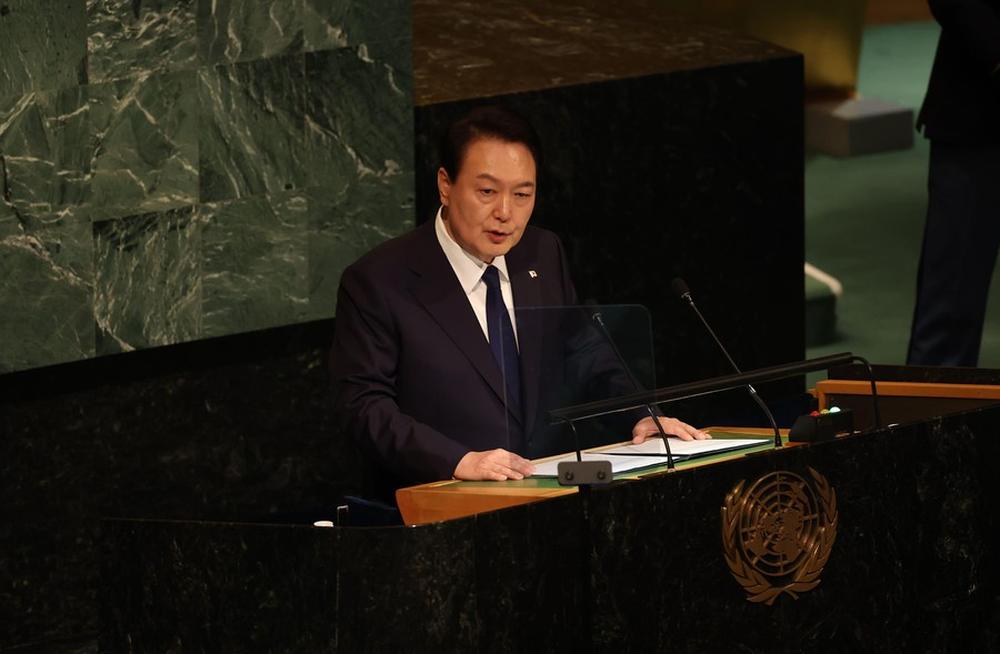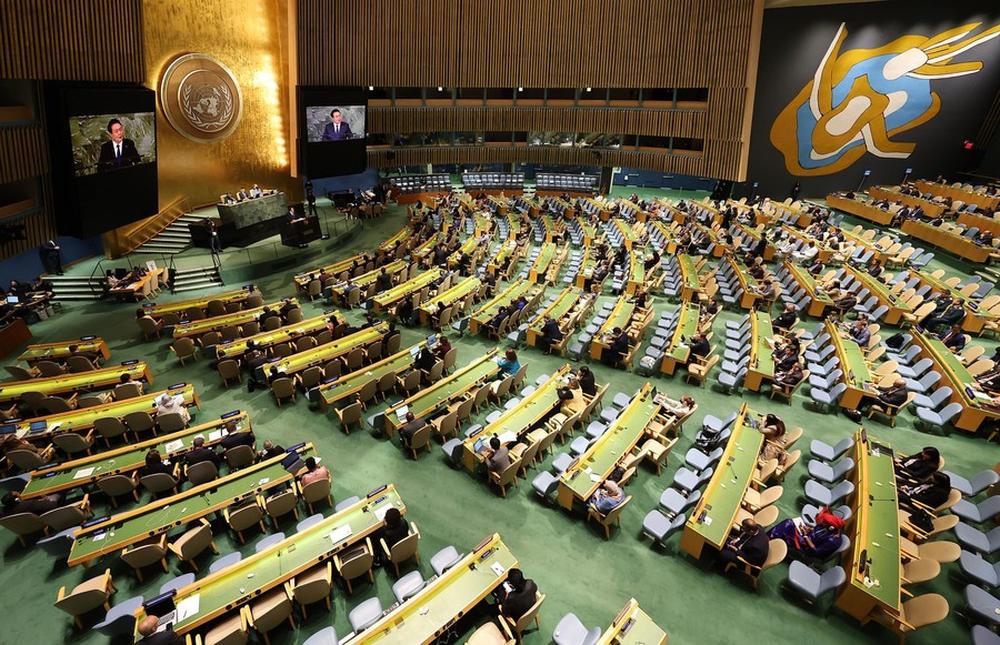- #UN General Assembly
- #Yoon Administration
- #Yoon Suk Yeol
- #UN
- #Korean Peninsula
- #South Korea
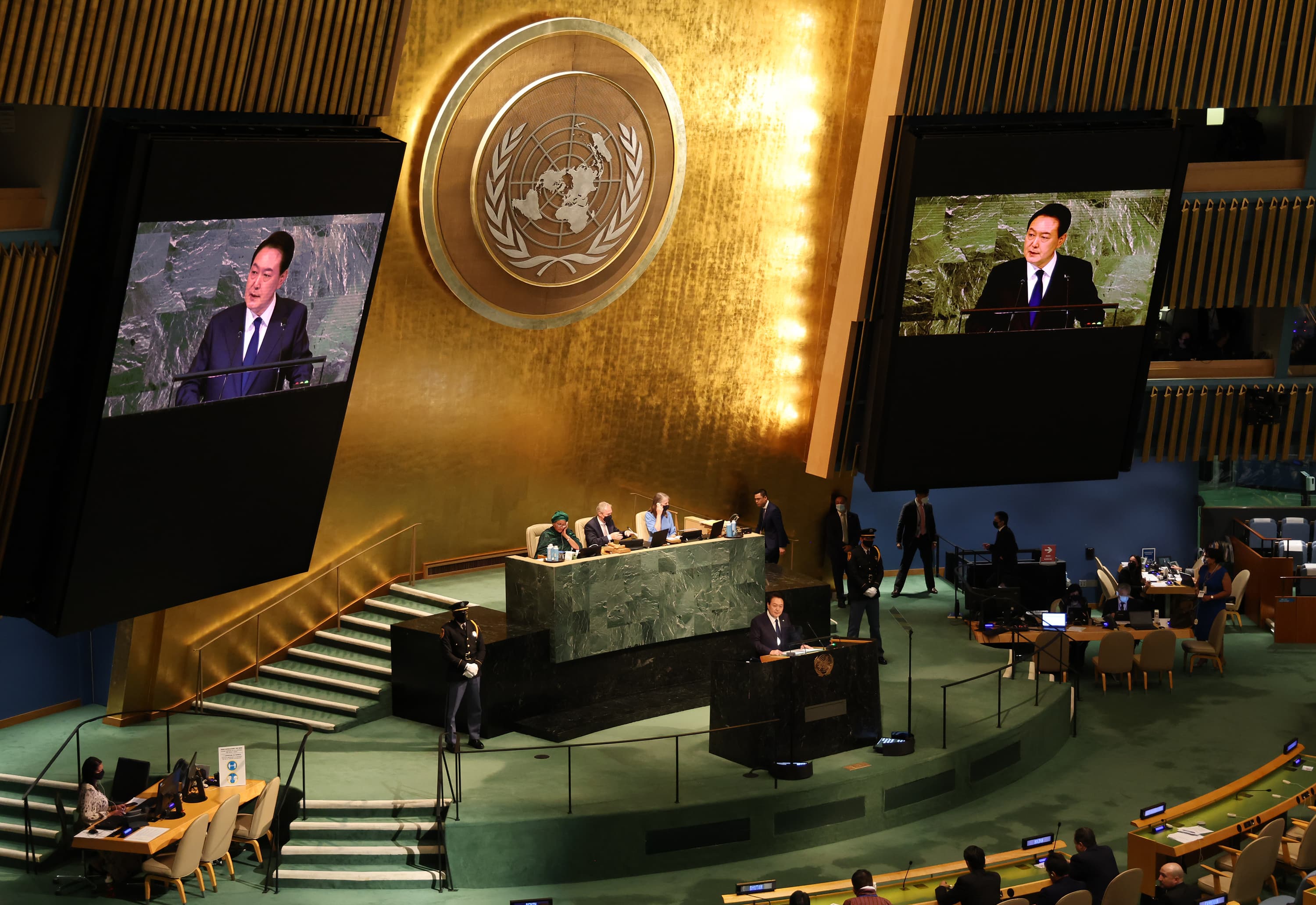
► Familiarity usually means something good, but it can also be a factor that makes trying or accepting new things difficult.
► From this point of view, it seems clear that President Yoon Suk Yeol's speech to the United Nations went beyond the comfort of conventional familiarity. Most importantly, the phrase “North Korea”, which has been included in speeches of successive presidents since South Korea joined the United Nations, was omitted.
► This speech stressed solidarity with the universal values essential to the international community, highlighting Korea’s departure from its past, which previously stressed only the unique situation of the peninsula.
► Instead, not mentioning North Korea in order to emphasize South Korea's changed perception of the international community and its approach to the North Korean problem from the perspective of universal values might prove to be more effective. By breaking with familiarity, the president’s originality has suggested that a better direction is possible.
Familiarity usually means something good, but it can also be a factor that makes trying or accepting new things difficult. Because of the cost of pursuing novel ideas and the anxiety surrounding uncertainty, people often choose the comfort of familiarity. As it is in our nature to seek such comfort, moving away from the familiar and choosing new options may result in a sense of rejection, even if this new alternative is not wrong or is more useful. At the instant when familiarity is combined with vested interests, a stronger sense of rejection comes into play. Such experiences occur not only in the small daily acts of life, like choosing familiar food, but also in the field of national policy. Since policies are pursued based on familiar past experiences, as is customary, one might expect that most policies, which are products of consensus, have no choice but to change gradually.
From this point of view, it seems clear that President Yoon Suk Yeol's speech to the United Nations went beyond the comfort of conventional familiarity. Most importantly, the phrase “North Korea”, which has been included in speeches of successive presidents since South Korea joined the United Nations, was omitted. Until now, South Korean presidents have, depending on the administration, used their UN addresses to emphasize either the denuclearization of North Korea or the end of war declaration that North Korea so desires. This time, some South Korean citizens, rather than considering whether it was meaningful to mention North Korea in the past, instead felt uncomfortable, as they were not used to a South Korean president not discussing North Korea at all. However, the question of whether it is wrong to not mention North Korea is something we need to ponder. Being unfamiliar and being wrong are two different things, and there is a possibility that these new attempts are quite meaningful.
This speech stressed solidarity with the universal values essential to the international community, highlighting Korea’s departure from its past, which previously stressed only the unique situation of the peninsula. Previously, Korea was committed to its peninsula-centered perception, exemplified by such phrases as 'If you leave your house, you will find hardship'. Even if an issue was directly related to Korea’s future, the popular opinion was that the national interest demanded that Korea refrain from expressing opinions on international matters as much as possible. Instead, it was thought that forums that discuss the international order, like the G7, should be used to raise awareness of the peculiarities of the Korean peninsula and North Korea, as this was in South Korea’s interest.
Rather than discussing the human rights and living conditions of North Koreans, which are in stark contrast to universal values, emphasis was placed on the Korean peninsula and the particularities of the North Korean regime. Rather than actively thinking about how to maintain and strengthen the international order, the focus was on passive concerns about how to reduce damage to South Korea in the process of forming a new international order. Koreans talk about democracy and human rights domestically but discussing the many people who do not have such benefits, including North Koreans, was treated as necessarily detrimental to our interests.
South Korea's approach to the international community in the past made it recognized as a country that emphasized only the peculiarities of South Korea and the North Korean regime rather than a responsible member of the international community that pursues universal values. Our policy toward North Korea should not start by analyzing the oddities of Pyongyang, but by looking into the lives of North Koreans from the perspective of freedom and human rights. President Yoon's speech to the United Nations seemed to emphasize that the starting point should be a focus on universal values. It is necessary to tell the world that the problems of North Koreans are no different from the problems of citizens suffering under other regimes, and that we value the lives of other nations’ citizens just as we appreciate the difficulties faced by North Koreans. Attendance at the NATO Summit in June was well received by many European countries in this regard. The European experts I met recognized it as a signal that Korea was finally trying to play an appropriate role. This UN speech has also been positively received by foreign experts.
If North Korea had been directly mentioned in this speech, it is likely that most of its evaluation would have been focused on what proposal the president offered the North. Instead, not mentioning North Korea in order to emphasize South Korea's changed perception of the international community and its approach to the North Korean problem from the perspective of universal values might prove to be more effective. By breaking with familiarity, the president’s originality has suggested that a better direction is possible.

